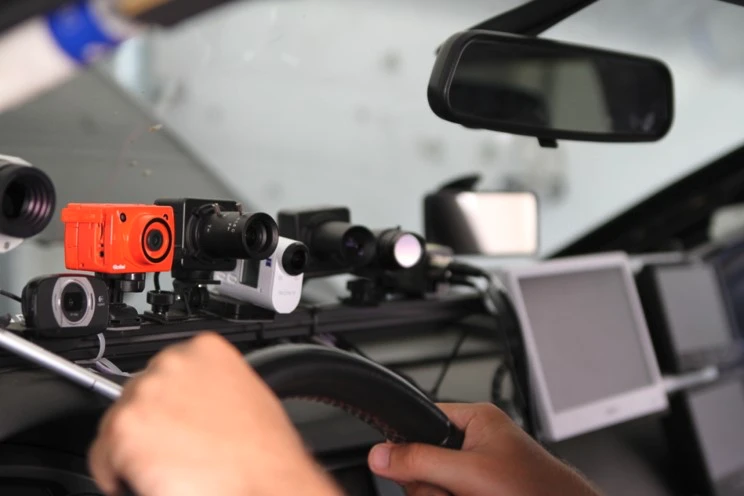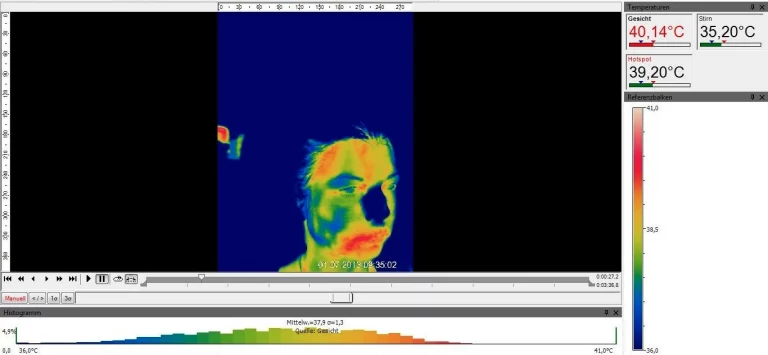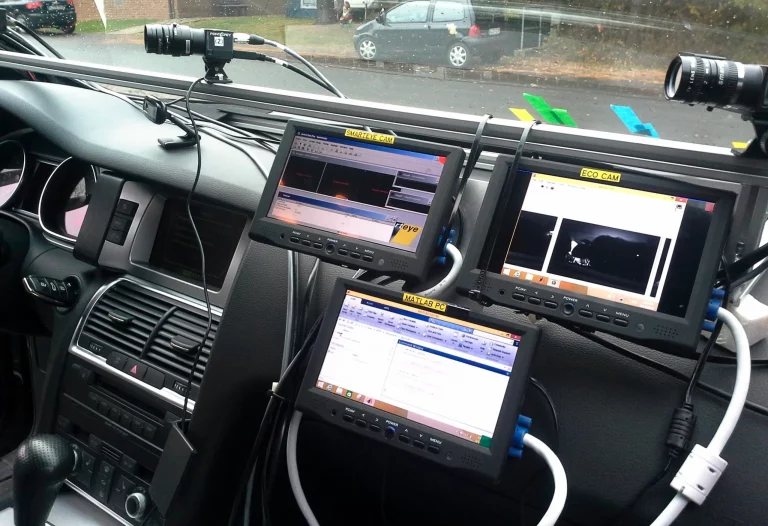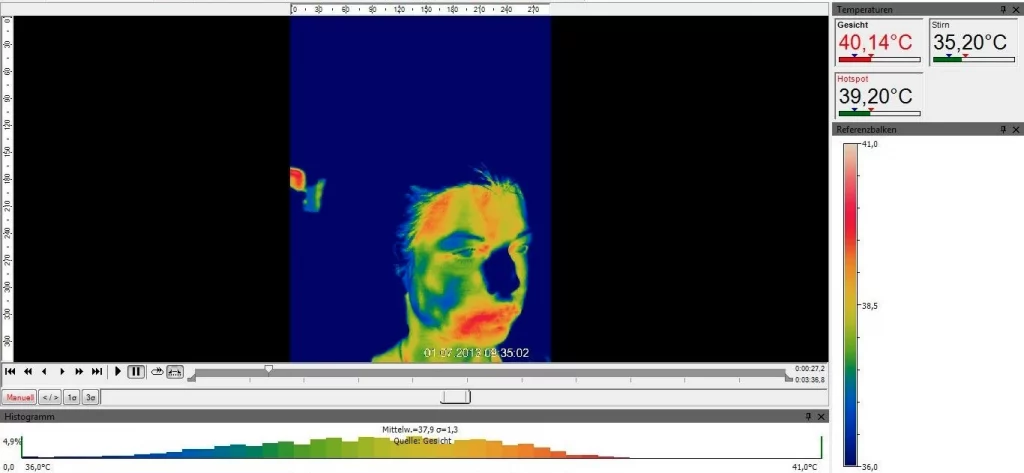
Mental Workload Detection based on non-invasive Psychophysiological Measures
Project Justification
Interacting with Advanced Driver Assistance Systems (ADAS) and infotainment interfaces while driving can increase cognitive load and potentially reduce road safety. Accurately estimating the mental workload induced by such systems is therefore essential for the development of safe and distraction-free user interfaces.
The aim of this project was to develop a reliable set of psychophysiological methods for measuring mental workload in the vehicle environment. By capturing cognitive strain in real time, these methods support the evaluation and optimization of human–machine interaction to ensure that assistance systems enhance rather than compromise driver performance.
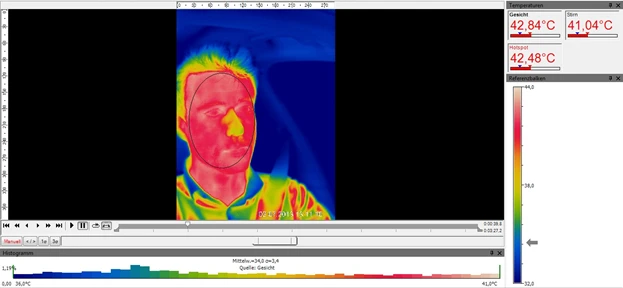
Real-time Facial Thermal Imaging of a participant during a drive in the driving simulator
Our Approach
In a controlled driving simulator setting, 60 participants were exposed to various scenarios designed to induce mental workload, such as navigating narrowed lanes or overtaking trucks. During the execution of these tasks, multiple biosignals and video-based data were recorded to assess physiological responses associated with cognitive demand. These included electrodermal activity (EDA), cardiovascular measures such as electrocardiography (ECG), and facial thermal imaging (FTI), enabling a comprehensive psychophysiological analysis of mental workload during simulated driving.
Section of the thermocam and course of the face temperature during a drive in the driving simulator
ECG and heart rate during a drive in the driving simulator
Insights and Outcomes
A late fusion approach combining ECG, facial thermal imaging (FTI), and electrodermal activity (EDA) demonstrated the highest accuracy in detecting mental workload. The classification performance further improved when a brute-force, multi-purpose feature set was applied to machine learning algorithms, highlighting the potential of multimodal data integration and comprehensive feature extraction for robust workload estimation.
Related Projects
Sudden sickness, distraction, and mind wondering detection by camera and audio based approaches for hand over situations in autonomous driving
Camera-Based Monitoring of Safety-Critical Driver Conditions
Evaluation of multiple fatigue intervention systems
Multimodal physiological measurements of mental workload for evaluating ADAS



